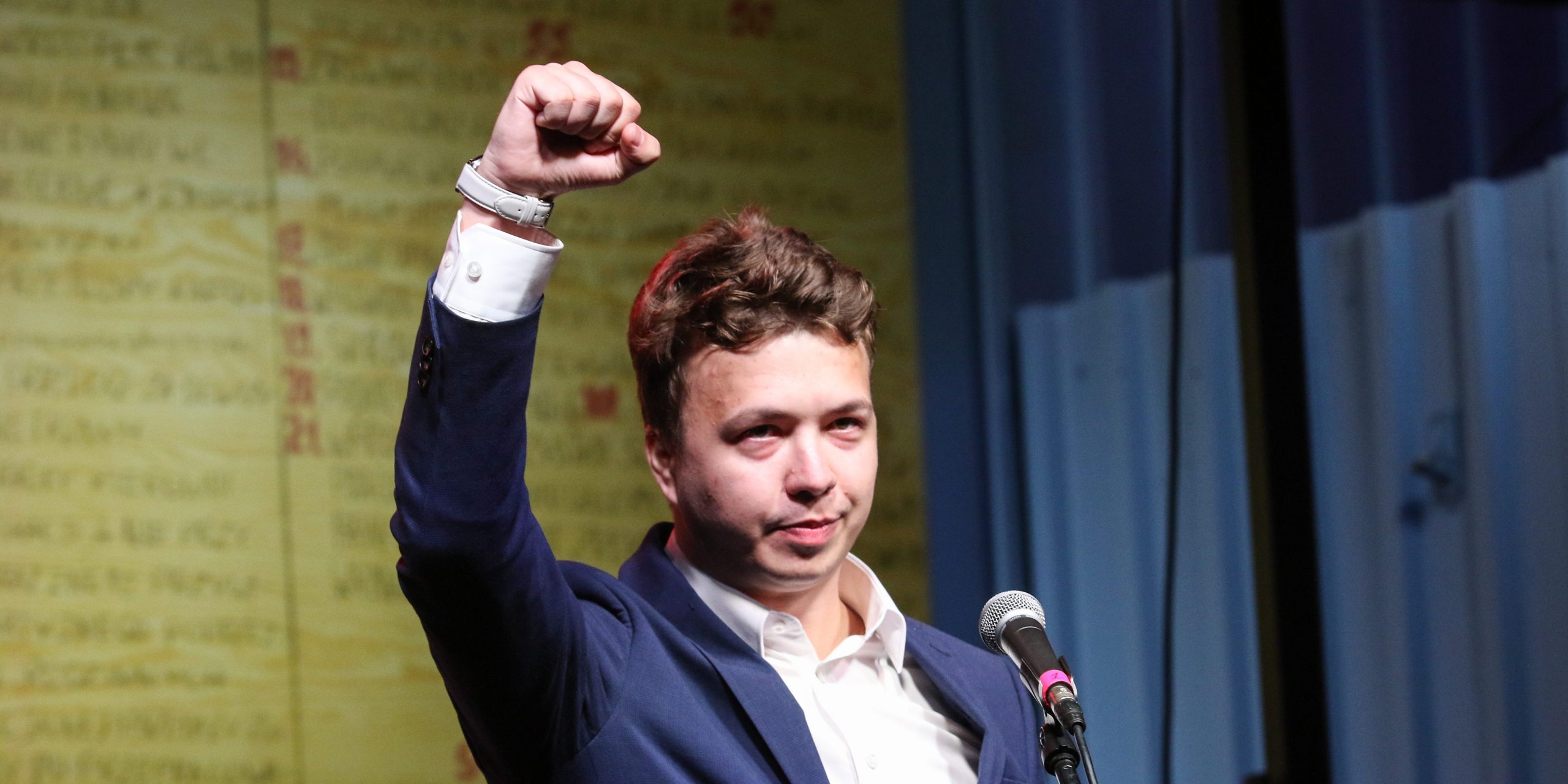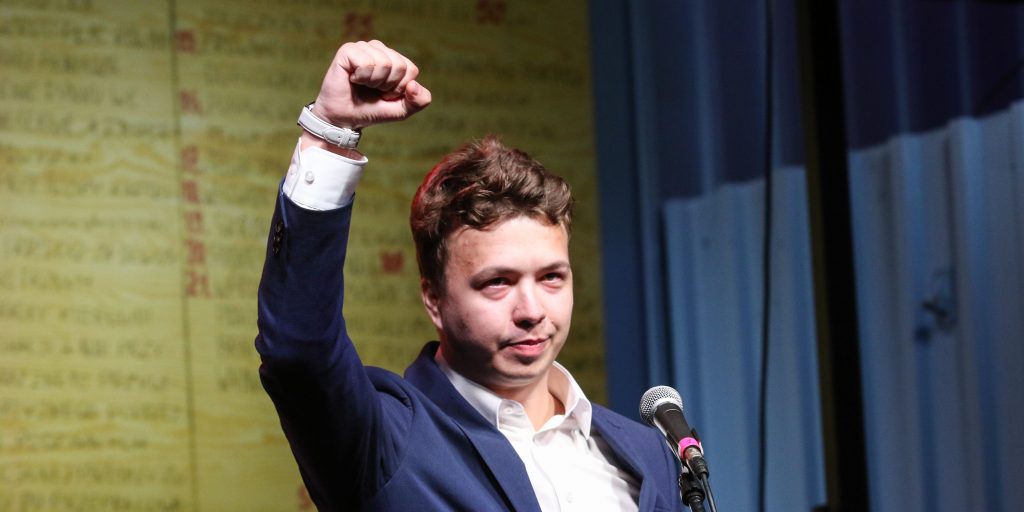
Photo by Michal Fludra/NurPhoto via Getty Images
- Roman Protasevich made preparations to protect his digital security before he was detained last month.
- But a friend said the young dissident did not predict that the Lukashenko regime would take such a drastic step.
- Franak Viačorka, a colleague of Protasevich, told Insider that his friend's "nightmare" was being captured by the KGB.
- See more stories on Insider's business page.
Weeks before Belarusian authorities diverted a passenger plane to Minsk in order to arrest 26-year-old dissident Roman Protasevich, the young opposition blogger had discussed with a colleague the possibility that Belarus's authoritarian president, Alexander Lukashenko, might make a targeted strike against him.
In the aftermath of Protasevich's arrest, Franak Viačorka, a senior advisor to exiled Belarusian opposition leader Svetlana Tikhanovskaya and a longtime colleague of Protasevich, told Insider that the two men had discussed potential scenarios and reactions to different events undertaken by their country's autocratic government.
"We thought about security a lot," Viačorka said. "Especially digital security."
As co-founder and editor-in-chief of NEXTA, a popular opposition Telegram channel based in Poland, Protasevich focused much of his work on leaking videos and documents from the Lukashenko regime. The team at NEXTA played a vital informational role during last year's highly contested presidential election as Lukashenko's regime shuttered independent media organizations inside the country.
When Belarusian security forces detained Protasevich on May 23 after the Ryanair flight he was traveling on from Greece to Lithuania was forced to land in Minsk, Viačorka said all of Protasevich's pages and accounts were deleted, thanks to prior digital security planning.
"But we neglected the physical security," he said. "This flight, this was something we did not predict.
Protasevich had been flying to Vilnius from Athens where he had been covering an economic forum before enjoying a brief vacation with his girlfriend, 23-year-old Sofia Sapega, who was also detained last month.
Viačorka had been in Greece with Protasevich just days before, where he and his boss, Tikhanovskaya, who was forced into exile after running against Lukashenko in August's disputed elections, attended the same conference, at the invitation of Greece's government, he said.
In fact, one week before Protasevich and Sapega's fateful Ryanair flight, Viačorka told Insider that he and Tikhanovskaya took the same flight from Athens to Vilnius.
"So, perhaps, that was also a message to us," he said.
When Viačorka saw the news that a plane had been forced to stop in Minsk on that Sunday in May, he said he was shocked. He believes he was one of the first people to know Protasevich was on the flight and the intended target of the aircraft's backtracking.
"I waited until the very last moment to not publish this information, hoping that something will change, hoping that they will let him go or they will not land in Minsk," he said.
In the hours and days that followed the abrupt diversion, passengers on the flight told reporters that Protasevich looked "shocked" and "scared" following the pilot's announcement, even as the young activist instinctively began collecting his electronics to hand over to Sapega for safekeeping.
Ryanair's CEO later said KGB agents had been aboard the flight from the start.
"I know Roman was scared. He was always afraid of being captured by KGB," Viačorka said. "It was his nightmare."
In their conversations in the weeks leading up to Protasevich's capture, the two men discussed KGB methods and spy networks, Viačorka said.
"Sometimes joking, sometimes seriously, we discussed these different situations," he said. "Perhaps, this is the only situation we did not predict."
Protasevich now faces a possible death sentence on charges of terrorism and inciting anti-government riots in Belarus - the last European country to employ the method.
On Thursday, he appeared on Belarusian state TV confessing to crimes against the country and praising his one-time foe, Lukashenko. Protasaevich's family, Belarusian opposition leaders, and members of the international community have decried the video, which has raised new concerns of torture and coercion.
